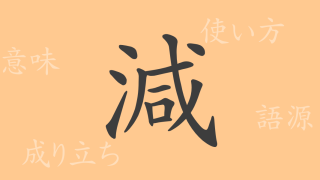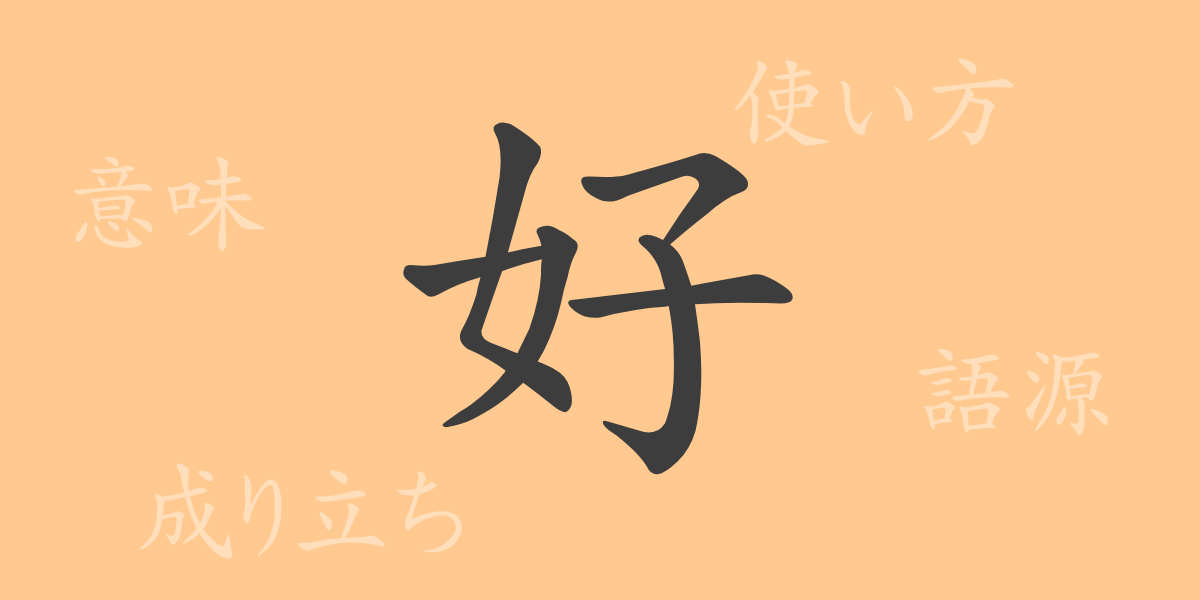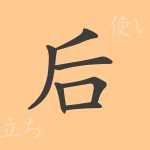The beauty of the Japanese language is reflected in its characters. Each kanji embodies history, meaning, and culture, and learning them is a journey not only into the language but also into the cultural background. This time, we focus on the common kanji “好” (すき: suki), exploring its charm. Frequently used in daily life, this kanji is indispensable for expressing positive emotions. Let’s delve into the rich history, meaning, and usage of this kanji together.
Origins of 好 (すき: suki)
The kanji “好” (すき: suki) originated from an image of a woman and child together. This reflects the ancient Chinese culture that valued familial bonds and affection. The meaning of “good” that 好 (すき: suki) conveys also signifies harmonious human relationships, showing that this kanji’s etymology reflects basic elements of human interactions.
Meaning and Usage of 好 (すき: suki)
The kanji “好” (すき: suki) means “to like,” “good,” and “to be pleased.” In Japanese, this kanji forms various words and expressions, such as “好き” (すき: suki), “好評” (こうひょう: kouhyou), and “好条件” (こうじょうけん: koujouken). These words are used to convey positive feelings and favorable conditions.
Readings, Stroke Count, and Radical of 好 (すき: suki)
The kanji “好” (すき: suki) is one of the most commonly used characters in Japanese. Let’s take a closer look at its readings and structure.
- Readings: The on-yomi (Chinese reading) is “コウ” (こう: kou), and the kun-yomi (Japanese reading) is “す.く” (すく: suku) and “この.む” (このむ: konomu).
- Stroke Count: It consists of 6 strokes.
- Radical: The radical is 女 (おんなへん: onna-hen), which means “woman.”
Compounds, Idioms, and Proverbs Featuring 好 (すき: suki)
There are numerous compounds, idioms, and proverbs that include “好” (すき: suki). Here are a few examples with explanations.
- 好奇心 (こうきしん: koukishin): A strong interest or curiosity in new things.
- 好評を博す (こうひょうをはくす: kouhyou wo hakusu): To be highly evaluated by many people.
- 好機を逃す (こうきをのがす: kouki wo nogasu): To miss a good opportunity.
- 好転する (こうてんする: koutou suru): For a situation to turn for the better.
- 好事魔多し (こうじまおおし: kouji ma ooshi): When trying to do something good, many obstacles arise; a saying meaning good things often encounter many difficulties.
Conclusion on 好 (すき: suki)
The kanji “好” (すき: suki) plays a vital role in the Japanese language. Understanding its history and meaning allows us to appreciate the deep cultural background of Japanese more richly. Widely used in everyday conversation, literature, and business contexts, this kanji is indispensable for expressing human emotions and relationships. Through this exploration, we hope you have come to appreciate the charm of “好” (すき: suki) anew.

























